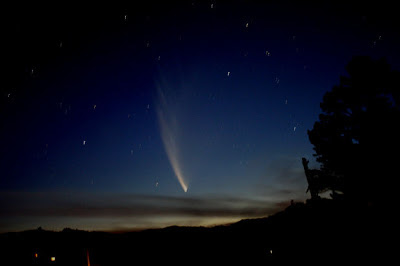Comet Tsuchinshan–ATLAS and the Age of the Solar System

Comet Tsuchinshan–ATLAS, so named because two observatories discovered it at almost the same time, dazzled the sky in late 2024. It has naturally prompted a great deal of discussion about orbits, eccentricities, and all that good stuff. Biblical creationists have pointed out that short-term comets would have ceased to exist if the solar system was billions of years old. Comets orbit, burn off some of their mass near the sun, repeat and fade. Also, some comets have collisions, get ejected from the solar system, and have their orbits changed, so those disappear as well. Comet Tsuchinshan-ATLAS, NASA / Eric Bordelon (usage does not imply endorsement of site contents) Of course, secular scientists are committed to a universe that is billions of years old and the solar system of about 4.5 billion years. One rescuing device for the problem of comets is the Kuiper Belt out yonder around Pluto. That has been disappointing them. Also to the rescue is the Oort Cloud, a huge collection of rock...

